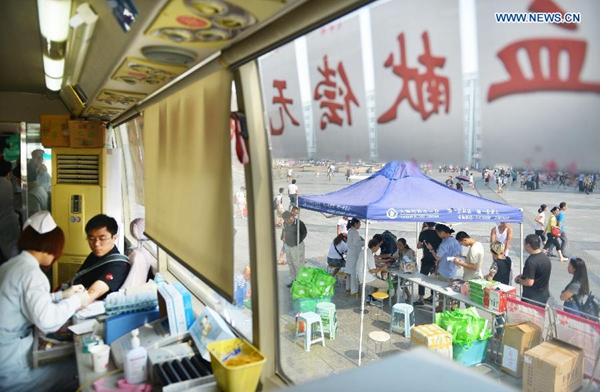Woman devoted to blood donation for 15 years
 0 Comment(s)
0 Comment(s) Print
Print E-mail China Daily, June 13, 2017
E-mail China Daily, June 13, 2017
|
|
|
People queue to donate blood outside a blood donation bus at Tianjin Railway Station in Tianjin, north China. [File Photo/Xinhua] |
Qin Xianzhen first donated blood in 2003. An electrical engineer in East China's Shandong Province, she did that to support patients with SARS, as the epidemic depleted the provincial blood center, Qin said.
She was later told by the blood center that she is a carrier of rhesus negative blood, or Rh negative blood, which is nicknamed "panda blood" in China because of its rarity. Only three in every 1,000 Chinese people have this type of blood.
As the Rh negative blood cannot be stored for long, the blood center hoped to be in contact with her so she could help those in need of blood.
Since then, Qin has kept her mobile phone switched on around the clock to answer phone calls from the blood center. Whenever she receives a phone call, she stops what she's doing and rushes to the center to donate blood.
Over the past 15 years, the volume of blood donated by Qin amounts to 8,000 millimeters, nearly twice that in a human body.
To keep in good shape, Qin walks 30,000 steps each day. At 57, the woman said she will keep donating blood for as long as she can. In China, the age limit for blood donors is 60.







Go to Forum >>0 Comment(s)